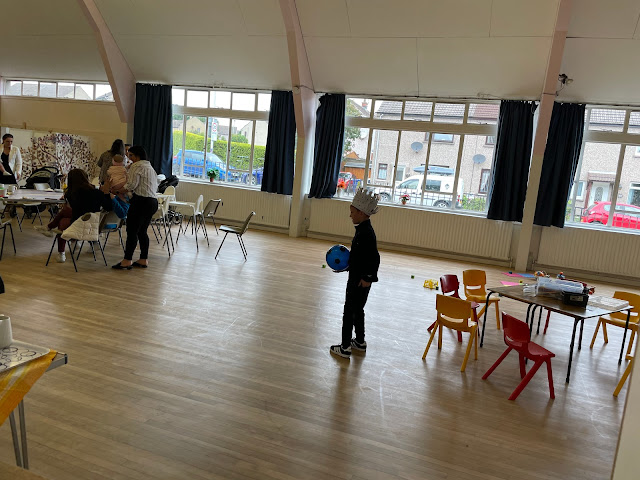Discovery Number Two: Discipleship First, NOT Worship First
On my sabbatical, I've made multiple (re)discoveries about how we might think differently about doing church work today. Here is number two! It's that we need to think of strategies that put discipleship first, not worship first.
The pieces were already in place for me to understand this one. What was lacking, however, was the imagination to see what it actually looks like in practice. Sometimes you just can't think yourself into a better way of acting ... you have to lead with your feet! That's what this discovery will allow us to do, or so I think.
Everything I've ever known about how to do church involves a WORSHIP FIRST strategy. This means that the goal of interacting with non-Christians or unchurched people has been to get them to visit and then regularly attend a church's worship service. As a missionary in Europe, I was always trying to gradually move people closer and closer to the ultimate goal of getting them to join our church worship gatherings. Even when I was heavily involved in a small-group-based church in Abilene, Texas that prided itself on trying to reach out, our aim was get people either to a small group worship service or to our big Sunday worship.
This same model exists in the mind of basically every American Christian I know. It's always been this way since Christianity became the official or dominant religion in the Western world. The thinking for ministers and members alike is to get our friends, family members, and neighbors to join our worship gatherings. All the church growth strategies focus on this. It's what we call a WORSHIP FIRST strategy.
This strategy perhaps worked somewhat in a world where it was popular or expedient to belong to a church. But this strategy leads to hopelessness in the Western world as it is today. We have had no imagination for anything different, and the result is great despair in my denomination and among my colleagues. To many, faithfulness means to just keep doing what doesn't work and hope things turn around.
There exists a potentially life-giving alternative. It's what we call the DISCIPLESHIP FIRST strategy. Some have called it loving first or even service first, but the ones who are doing it seem to prefer the discipleship terminology. This is when the goal of interacting with non-Christians or unchurched folks is NOT to get them to a formal worship gathering of the church. Not a small group. Not a contemporary service. Not an Easter service. Because it's NOT a worship-first strategy.
The goal is to build community with people who aren't yet practicing believers, and to build this community outside the normal structures of worship. Over time, the goal most certainly is to introduce some kind of Christian practice, be it prayer or meditation or readings. And then to form a new kind of Christian community with this group, or with some portion of the group who are indeed interested in spiritual things.
This approach is not a bridge into the church's traditional worship gatherings. Not now. Maybe at some point. But perhaps not ever. The goal is to form communities of new believers whose lives are being shaped as disciples of Jesus. Whatever worship takes place will eventually be a byproduct of this discipleship strategy, not the goal.
I read about all this in advance. I liked the sound of a DISCIPLESHIP FIRST approach. I thought I got it, and yet I couldn't really imagine it. Just how would it work? How would Christians receive this? How would these new Christian communities support the wider church? What does it look like? If you read on, you'll likely have lots of questions, too. It's such a subtle shift, yet the difference is profound.
I met numerous people putting this into practice in communities large and small, rural and urban, working-class and middle-class-suburban. Julie and I were both blown away both by the simplicity of what's happening and the entrepreneurial ingenuity at work. Note: There are certainly differences between the UK and the US, and some of these areas had little to no Christian presence unlike many American communities where there are almost too many churches. But what we saw impressed us deeply.
As one example, we met Erika Pryde and Sue McKinzie. They're working in a small parish south of Edinburgh, Scotland where they are putting this kind of DISCIPLESHIP FIRST work into practice. These are women in the 40s who have had other careers. They're what we call "lay" workers, not ordained as ministers or clergy. They came on board just before Covid, but they used that time to become visible and lay the groundwork for what's happening now.
Erika and Sue were hired to work with Newton Parish Church, a dying Church of Scotland congregation that was down to eight or so retirees. Amazingly, it's the only active church in this community. And "active" is a stretch. With the help of their part-time, semi-retired minister, they meet on Sundays in their ancient little sanctuary. Not a very encouraging situation.
On the positive side, the church had built a community center in the 1980s. Many community members had helped back in the day, but it had fallen into disrepair and disuse. It sits a mile or so from the actual church building. It's at the crossroads of the community, which is a mix of older homes and townhouses alongside a large development of newly built apartment buildings and condos.
Erika and Sue didn't know each other, but they had both been training to lead a discipleship-first project in some church. They both live close to Newton Parish and were hired to work 15 hours per week to see if they could get something off the ground. It's the kind of thing that the Church of Scotland and the Church of England, along with other denominations, are investing in little by little in communities across the UK.





Comments